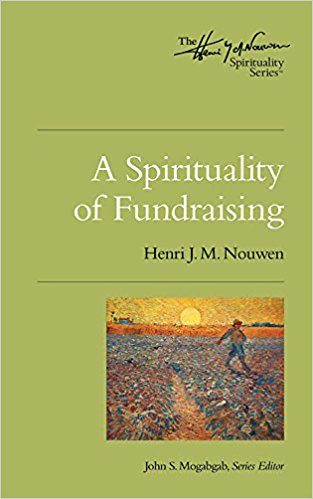We do capital campaigns, but those represent only one aspect of successful church strategic planning. There is a whole process to growing your church and getting ready for a big fundraising project. We advocate embracing these 4 steps before a church capital campaign.
1. Pray and Discern God’s Will
God has a plan for your church. The central challenge is to determine where that plan might lead the church. Prayer and discernment are the best vehicles to understand God’s will for your community, and to separate it from your own will (ouch, too real!). If you’re not sure where to start in praying about financial resources, Henri Nouwen’s The Spirituality of Fundraising is a great, short book that everyone on your stewardship team should read and pray about.
2. Create a Long-range Plan and Vision
Your congregation should be able to answer these key questions:
- What will your church be like in 5, 10 and 20 years?
- What do you want your ministry to look like?
- Who do you serve?
- How are people connected to the community?
- Who are you as a church?
If you can’t answer those, than a visioning conversation needs to happen in your leadership cabinet or pastoral council meeting before you begin your parish fundraising campaign. A common vision for the community that everyone can get behind, with feedback from everyone in the community (not just the pastor’s ideas), will give a sense of direction, purpose, and urgency in all your endeavors.
This plan should extend to include the ways in which you’ll invite your members into discipleship through stewardship. A strategic plan for your stewardship efforts will ensure ongoing resources and give everyone an invitation to grow in trust of God’s abundance.
3. Create a Master Plan for Growth
Beginning with your long-term vision, imagine what facility needs you will have as your community grows in the areas your leadership team has made a priority. Will you run out of rooms for small group meetings. Is your worship space more than 80% full on a regular Sunday? These may be indicators that you need to build. And the time to start planning those expansions is before you’re in an emergency situation in which people are turning away.
With the support of an architect or contractor, your leadership team can estimate square footage, type of construction, and site development costs or renovations costs that will fit the spacial needs for ministry. Your church might also use a financial consultant to explore new legacy giving programs or other means to successfully meet the needs of a growing church. These estimates will determine whether the church needs to build in phases, borrow money, explore other alternatives, or plan a series of capital campaigns.
This is also the phase you want to start thinking about hiring a firm to assist with your project. You’ll want to look for a professional, experienced group that specialized in church capital campaign management. Here are some tips if you’re thinking of going that route (which we and most denominational leaders highly recommend).
4. Conduct a Feasibility Study
A financial forecast helps determine your church’s capacity to assume the financial burdens inherent in growth. The forecast will also suggest possible monetary goals for a capital campaign by evaluating what is realistic given resources in the church community. The forecast should include the church’s giving history, current annual giving, current growth rate, and potential growth rate. (Making this report is a good practice every few years to make sure you’re on track, whether you plan to do a capital campaign in the near future or not.)
If you are needing a capital campaign, a full feasibility study will help you achieve the most success with your campaign efforts. Through interviews and surveys your members will give you feedback on your long-range planning and vision. It will also help determine the congregation’s level of commitment and members’ willingness to contribute with their time and resources to a capital campaign.
You’re well on your way to proceeding with a stewardship-based capital campaign at your church!



